detail profile jaroslav voz c3 a1b
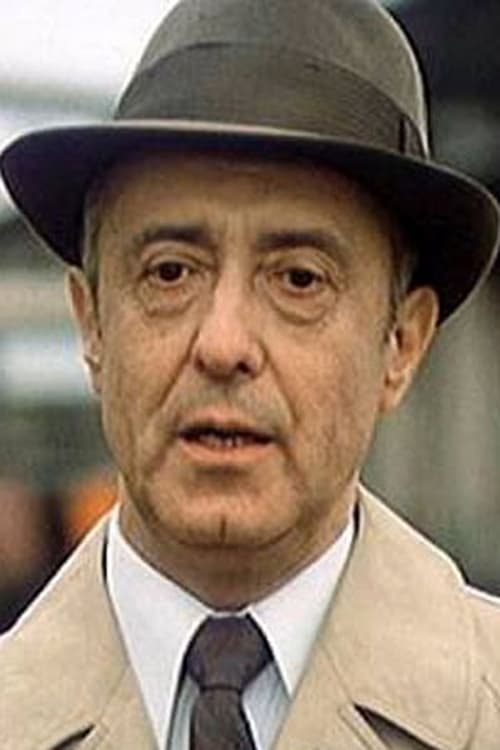
Riwayat Hidup
Dlouholetý člen Divadla Járy Cimrmana se narodil 16.
12.
1919 ve Velvarech u Prahy.
Původní profesí překladatel se k dnes již legendárnímu souboru připojil v roce 1969 a poprvé se objevil ve hře Hospoda Na Mýtince.
V mužském souboru byl častým představitelem ženských postav.
Ve společnosti divadelních kolegů jsme jej v menších, leč rozhodně ne zanedbatelných rolích, mohli vídat i ve filmu.
Jaroslav Vozáb měl velmi specifický projev a nezaměnitelný hlas.
Právě proto byl režiséry obsazován a z epizodních rolí se díky němu stávaly nesmrtelné a hlášky pronesené jeho ústy až kultovní.
Kdo neslyšel větu "Hujer, metelesku, blesku!" tak by se měl podívat na komedii MAREČKU, PODEJTE MI PERO (1976).
Jaroslav Vozáb zde v roli tlumočníka doprovází zahraniční delegaci továrnou a uvedená replika měla být překladem příkazu "Hujere, jděte si po svejch!".
Scénář z pera duchovních otců českého velikána Járy Cimrmana (S+S) je zde opět dotažen k dokonalosti.
Jeho filmografie obsahuje takové klenoty české kinematografie jako NA SAMOTĚ U LESA (1976), KULOVÝ BLESK (1978), VRCHNÍ, PRCHNI! a POSTŘIŽINY (oba 1980), JÁRA CIMRMAN, LEŽÍCÍ, SPÍCÍ (1983), ROZPUŠTĚNÝ A VYPUŠTĚNÝ (1984) a mnoho dalších.
V "gotickém příběhu" Jana Švankmajera OTRANTSKÝ ZÁMEK ztvárnil hlavní roli badatele.
Krátkometrážní pseudodokument odhaluje historii jednoho hradu v Severních Čechách.
3.
dubna 1988 Jaroslav Vozáb navždy odešel.
Pochován je v rodných Velvarech.
Info Pribadi
Peran Yang Di Mainkan Jaroslav Vozáb
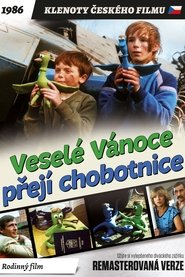 Eva and her younger brother Johnny...
Eva and her younger brother Johnny...Merry Christmas Octopus 1987
Eva and her younger brother Johnny own two sentient octopuses made out of strange matter. Will their parents divorce and ruin Christmas? Will a scientist find a way to use their pets as fuel? Live action film with stop-motion octopuses.
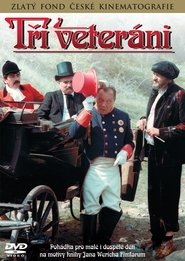 It is a story of three...
It is a story of three...The Three Veterans 1984
It is a story of three veterans released from the army. During one night spent camping in the country they one by one wake up and meet three elvish brothers. Each of the veterans is given a magic item - one gets magic harp that provides him with servants by wish, other one endless pouch of gold and the last one owns magic hat that can create all the staff excluding money and people.
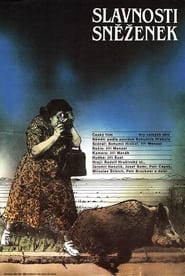 This movie is based on texts...
This movie is based on texts...The Snowdrop Festival 1984
This movie is based on texts of Bohumil Hrabal, world-known Czech prosaic. It's a story (in a form of a mosaic of short episodes and pictures) about the sadness and happiness of inhabitants of Kersko (Kersko is a small woody area full of cottages and roods). These people are both simple and sensitive, they have their own pleasures (e.g. Leli is a collector of cheap, but inutile things) and the greatest delight of all of them is a hunting. Crude poetics of amateur hunting is screened by dreamy pictures of this area. Menzel mixes sentimental lyricism and rough (but not vulgar!) humor and the outcome is the never-ending landscape of continuous life in the proximate nearness of nature. The performances of actors are brilliant. Both Rudolf Hrusinsky as a Franz and Jaromír Hanzlik as a Leli have nonrecurring charm bottomed on a pain and inebriation. Only the music is not perfect: Jiri Sust usually assembled his film music from his older works and in this movie there is many quotations.
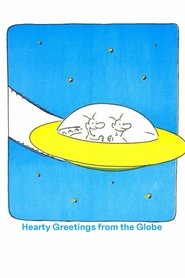 Two aliens stir up trouble on...
Two aliens stir up trouble on...Hearty Greetings from the Globe 1983
Two aliens stir up trouble on Earth in order to study humans. Misunderstandings ensue.
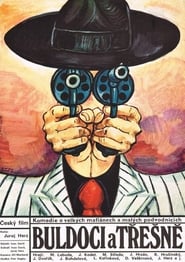 The dreaded Italian mafioso Marian Labuda...
The dreaded Italian mafioso Marian Labuda...Bulldogs and Cherries 1981
The dreaded Italian mafioso, Marian Labuda, will also be convinced. Mafioso Carmello was guilty of the principles of his organization when he tried to fool the boss and earned a death sentence. The convict runs away from the killer through Vienna to Prague, which his Austrian colleague in crime recommended as a safe hiding place. None of them knows that the Czechs learned so much tricks under real socialism that a seasoned Italian professional is not enough to watch.
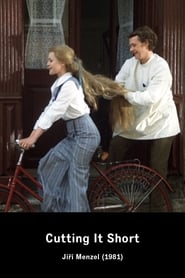 Francin manager of a smalltown brewery...
Francin manager of a smalltown brewery...Cutting It Short 1981
Francin, manager of a small-town brewery, has a charming wife whose abundant blonde locks are an adornment to the town. Maryska looks ethereal but loves meat and beer, while Francin is an ascetic. The strict members of the brewery board of directors come to audit the accounts, but are diverted from concentrating on Francin's detailed reports by Maryska, who has organized a pig-killing feast and is ably assisting the butcher. When she invites the old curmudgeons on the board to enjoy the fresh pork, they are too happy to agree. Francin doesn't know whether he is going to get a permanent contract. To make things worse his brother Pepin - eccentric, noisy and garrulous - turns up on an indefinite visit.
 A comedy about exchange of 12 apartments...
A comedy about exchange of 12 apartments...Ball Lightning 1979
A comedy about exchange of 12 apartments , which, its organizer, lawyer Radosta, rightly called Action Ball Lightning. To prepare, organize and execute the exchange of twelve apartments is a work worthy champions. Radosta, who was excellently played by Rudolf Hrušínský, solved all sudden difficulties and complications on the fly and with grace. To be sure that the on the D-day everything goes well he prepares a little rehearsal, which reveals many minor issues caused for example by wedding ordered to inappropriate term or hesitation of some participants. Last but not least a night exercise announced by drunk psychologist Knotků, creates a lot of confusion that nearly sabotaged the whole operation.
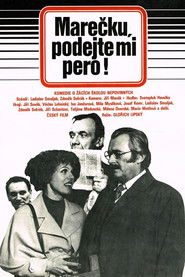 This comedy is about one average...
This comedy is about one average...Marecek, Pass Me the Pen! 1976
This comedy is about one average family. The father works as master in the factory and his son is studying on high school. One day father must start to visit the evening school. It's the same school as his son visiting. The lives both students are connecting together. The son must teach the math and physics his own father. The father getting to know, that the life of the students is not simple as he supposed.
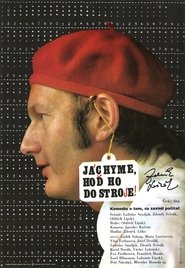 A sincere provincial young man Frantisek...
A sincere provincial young man Frantisek...Joachim, Put It in the Machine 1974
A sincere provincial young man, Frantisek Koudelka leaves to work in Prague. For the trip he buys a computer made horoscope with biorhythms charts, marked according to his date of birth, there are trappy, precarious, unsuccessful and even critical days and few successful days. The clumsy luckless person Frantisek has finally a guidance for his life.
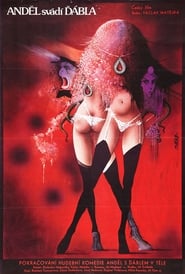 Musical comedy
Musical comedy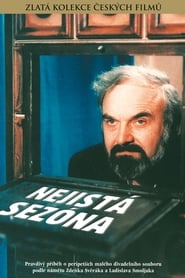 The small group of actors have...
The small group of actors have...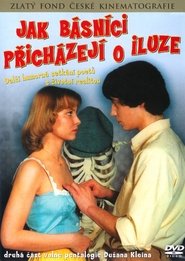 A story about a young medical...
A story about a young medical...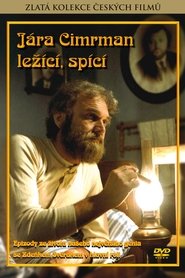 Czechoslovak comedy film directed by Ladislav...
Czechoslovak comedy film directed by Ladislav...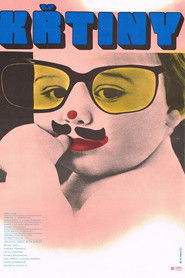 Deputy of cartography enterprise Mr Ciruvka...
Deputy of cartography enterprise Mr Ciruvka...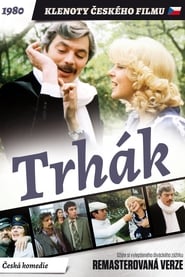
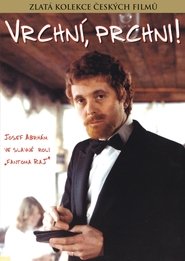 A comedy concerning a down on...
A comedy concerning a down on...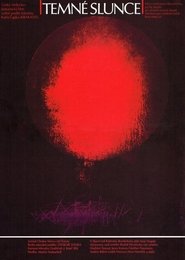 A remake of Vvras 1948 atomic age...
A remake of Vvras 1948 atomic age...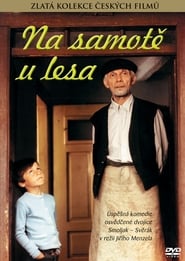 The Lavickas a Czech family from...
The Lavickas a Czech family from...